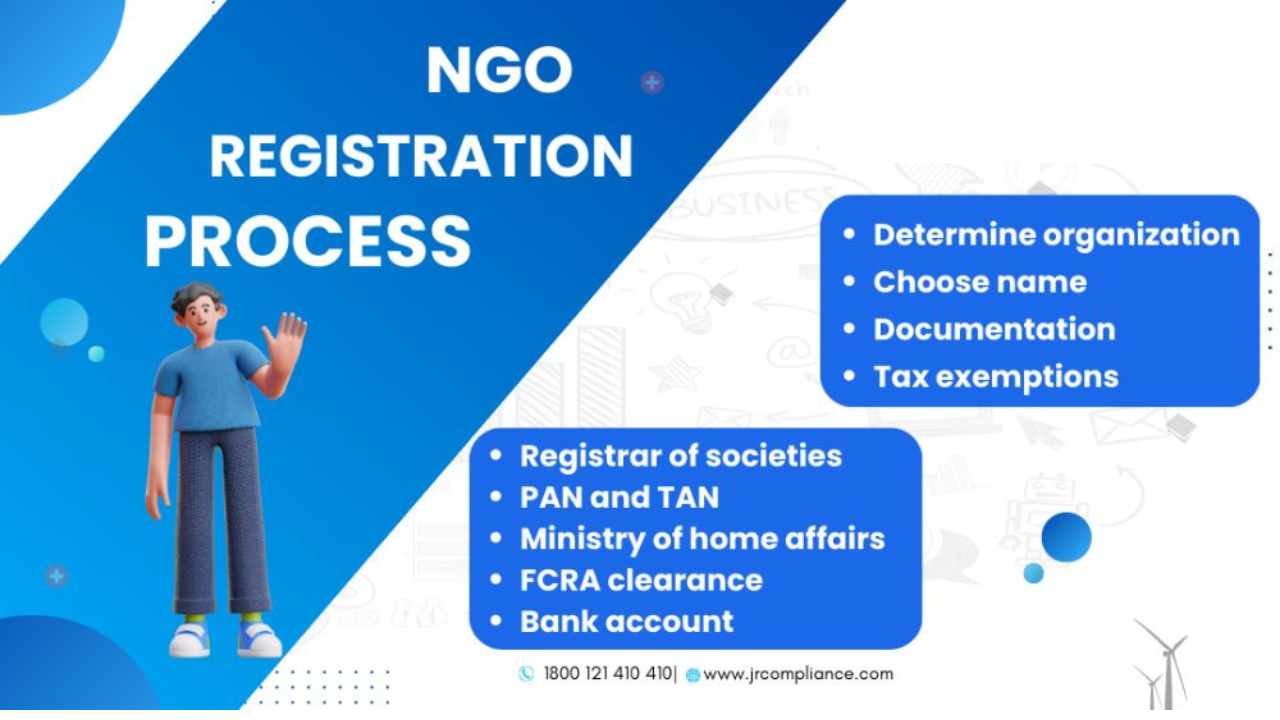Service Details
- Home
- Service Details
Conatct Us
NGO Registration
Non-Governmental Organizations (NGOs) are crucial in addressing societal challenges, driving social transformation, and advocating for the underprivileged. The journey of creating an impactful NGO begins with its legal establishment—a process known as NGO registration.
What is NGO Registration?
NGO registration is the formal procedure that grants organizations the legal status to operate and engage in philanthropic activities. It enhances credibility, ensures transparency, and offers multiple benefits, such as eligibility for tax exemptions.

Following are the different types of NGO Registration in India:
1. Trust Registration:
Process Overview:
Drafting a Trust Deed in compliance with the Indian Trusts Act, 1882.
Appointment of trustees and formation of a governing body.
Submission of registration documents to the Registrar of Trusts.
Obtaining tax exemptions under Section 12A and 80G.
Documentation Requirements:
Bill of electricity or water as address proof.
Identity proof of at least two trustees (Voter ID, Driving License, Passport, Aadhaar Card).
2. Society Registration:
Process Overview:
Drafting a Memorandum of Association (MoA) and By-laws in adherence to the Societies Registration Act, 1860.
Formation of a Governing Council.
Submission of registration documents to the Registrar of Societies.
Obtaining tax exemptions under Section 12A and 80G.
Documentation Requirements:
Name of the society.
Address proof of the office.
Identity proof of all nine members (Driving License, Passport, Voter ID, Aadhaar Card).
3. Section 8 Company Registration:
Process Overview:
Drafting the Memorandum and Articles of Association in accordance with the Companies Act of 2013.
Formation of a Board of Directors.
Submission of registration documents to the Registrar of Companies (ROC).
Obtaining tax exemptions under Section 8(1) and 12A.
Documentation Requirements:
Name of the Company for approval.
Address proof of the office.
Identity proof of all directors (Driving License, Passport, Voter ID, Aadhaar Card).

Why Is NGO Registration Required?
Registering an NGO is essential for ensuring legal compliance, building trust, and enhancing the organization’s effectiveness in achieving its goals. Here are the key reasons for NGO registration:
Credibility: Registration boosts the organization’s authenticity, attracting donors, collaborators, and supporters who trust its mission and operations.
Operational Development: With registration, NGOs can scale their activities, expand local operations, and create a broader community impact.
Resource Expansion: Registered NGOs can access financial benefits, such as tax exemptions, and attract more volunteers and contributors, enhancing their resource base.
Tax Benefits: NGOs registered under the Income Tax Act of 2013 in India qualify for significant tax exemptions, supporting financial sustainability and growth.
Asset and Liability Management: Registration enables NGOs to own assets, incur liabilities, and manage financial interests, laying a strong foundation for long-term organizational development.
Stamp Duty Exemption: Section 8 companies enjoy exemptions from stamp duty, further reducing costs and allowing efficient allocation of resources.
By registering, NGOs establish a legal framework that empowers them to operate effectively and create a lasting social impact.
